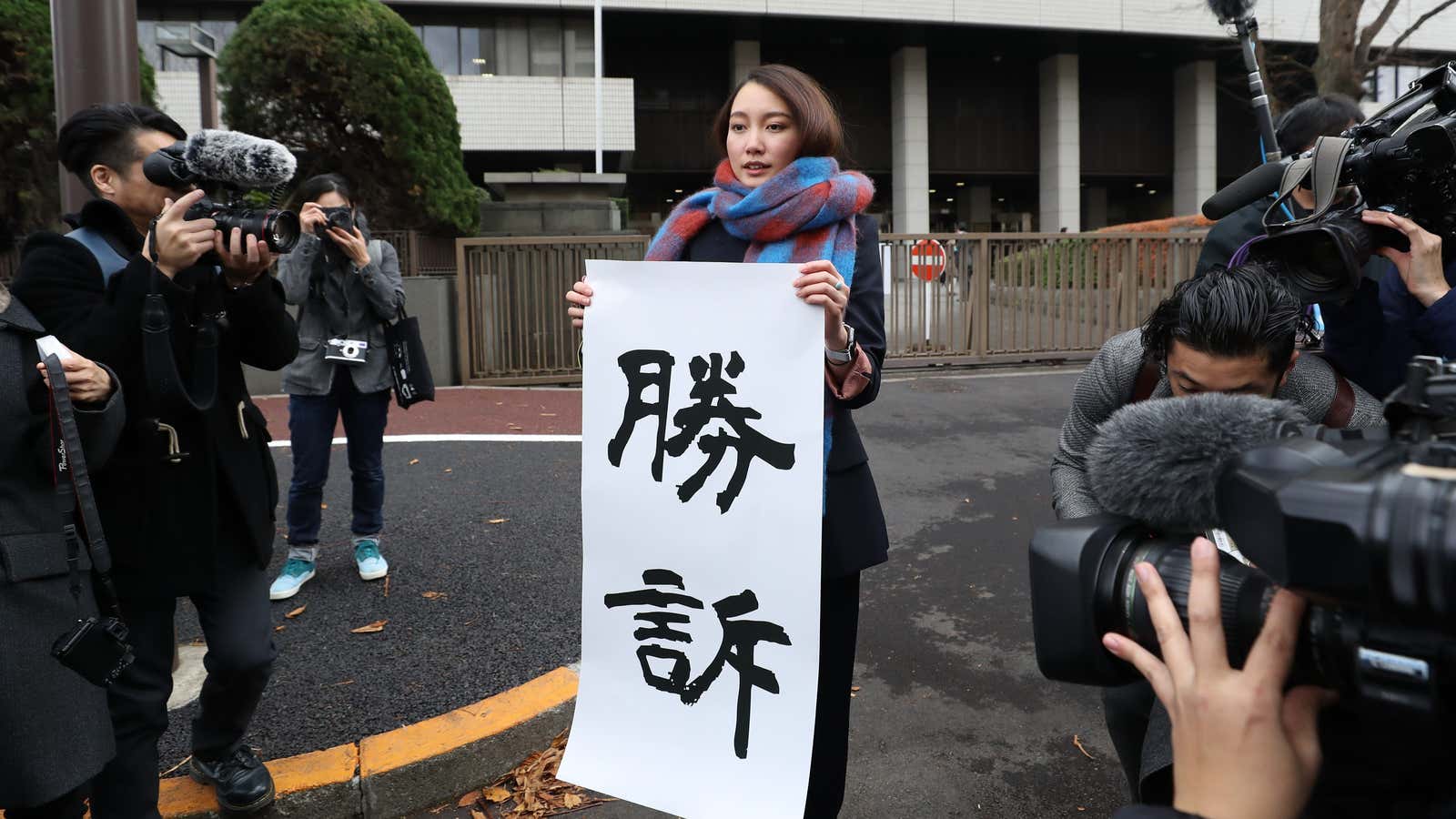A former TV news intern who became the face of the #MeToo movement in Japan after she went public with allegations of an assault by a senior male journalist won her civil court case in Tokyo today (Dec. 18), a rare victory in a country where public discussion of sexual assault remains extremely muted.
A court ordered Noriyuki Yamaguchi, a former Washington bureau chief for broadcaster TBS with close ties to prime minister Shinzo Abe, to pay ¥3.3 million ($30,100) in damages to Shiori Ito, who had sought ¥11 million. According to Ito, Yamaguchi raped her in a hotel room in 2015 in Tokyo while she was unconscious, after they met for a drink to discuss Ito’s career path.
The path to her legal victory was perilous from the start. Following a police investigation—in which Ito was made to reenact the ordeal using a sex doll—prosecutors dropped the charges. Ito went public about her experience in 2017, with a news conference, and also recounted her experiences in a book called Black Box. That year, she also filed a civil lawsuit against Yamaguchi, who filed a counter claim seeking ¥130 million in compensation. The court also ruled against his suit today.
Yamaguchi said he would appeal.
Yamaguchi told the New York Times in 2017 that Ito had drank too much so he brought her back to his hotel room as he was concerned for her safety. Ito has said she felt dizzy and blacked out during the dinner, and has wondered if she was drugged. According to court documents, Yamaguchi said he undressed her to clean her up and tried to initiate sex with her, claiming that Ito was fully conscious and did not resist.
To date, the most powerful man to fall from power after he faced accusations of sexual assault is Junichi Fukuda, formerly the finance ministry’s top bureaucrat, who was accused of making sexual advances against multiple female reporters. He resigned last year.
While #MeToo has rippled through almost all sectors of society in countries like the US—where it has taken down some of the most powerful men in politics and entertainment—and South Korea, where the movement has galvanized women to voice out and take to the streets regularly in protest of violations against women’s rights, in Japan it has progressed in fits and starts and remains relatively subdued. In addition to an overall environment that remains hugely discriminatory against women—the country ranked 121 out of 153 in the World Economic Forum’s most recent global gender-gap report, sliding 11 places from a year ago—some experts say that a lack of understanding of consent and what constitutes rape, and the downplaying of sex crimes against women in Japan also prevents more people from discussing the issue.
